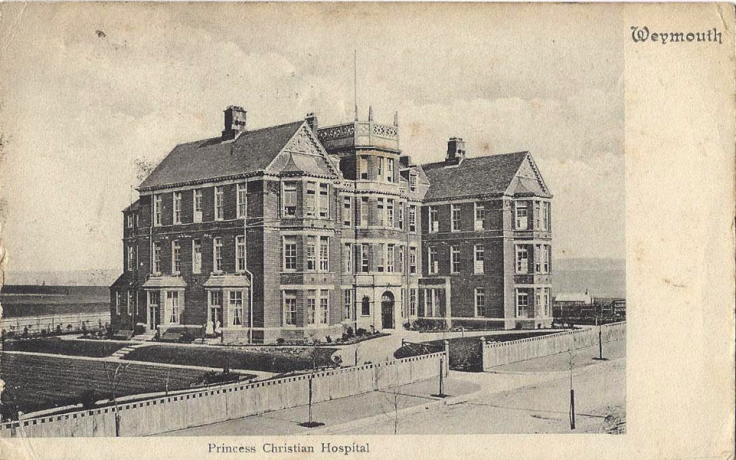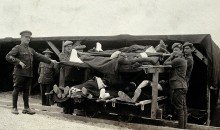Not until I started researching the Nothe Fort had I realised just how much involvement our town had during WWI.
The Nothe Fort itself was manned by the men of the Coastal Artillery, but they saw no action during the war from its ramparts. Instead it seems to have ended up as a training ground for enlisted men and volunteers, many of whom were later sent to the Front.
That left behind men deemed too old, too young or unsuitable for service abroad, they remained to defend our shores, though thankfully the battles lines never reached them.
But Weymouth also played another role.
She took in many of the wounded from the fierce fighting in France.
A piece in the Western Gazette of Christmas Day 1914 gives a glimpse into the world of our not so long ago ancestors of Weymouth, many of whom helped in some way or another.
The article headlines proclaims
MORE WOUNDED ARRIVE AT WEYMOUTH.
The week before Christmas, a hospital train had arrived in Weymouth filled with over 70 wounded men. They were taken straight to the Princess Christian Hospital where they were cared for.

These battle weary soldiers had been ‘conveyed straight from the Front with as much expedition as possible’.
The reporter elaborates on their pitiful condition, ‘they bore conspicuous signs of not only hard fighting, but also the severity of the weather experienced in the northern part of France’. Indeed, several of the wounded were suffering from severe frost bite.
Dr James Macpherson Lawrie met the hospital train that Friday morning, he was the senior surgeon at the hospital. (Scottish born Lawrie was also the man who had set up Weymouth’s Princess Christian hospital at the start of the 20th century by means of fundraising in the local grand houses and communities.)
Also there to transport the wounded were members of the British Red Cross, led by Commandant F J Bath.
The majority of the wounded were relatively mobile and were helped into a fleet of waiting cabs and motor cars. The more serious cases were stretchered into ambulances.
Once all and sundry had been transferred to the Princess Christian Hospital, ‘the patients were made as comfortable as their circumstances would permit’.
During that terrible period of conflict, many a wounded soldier found himself cared for within the walls of Weymouth hospitals,
‘They represented many regiments and several have records of having distinguished themselves in the field’.







